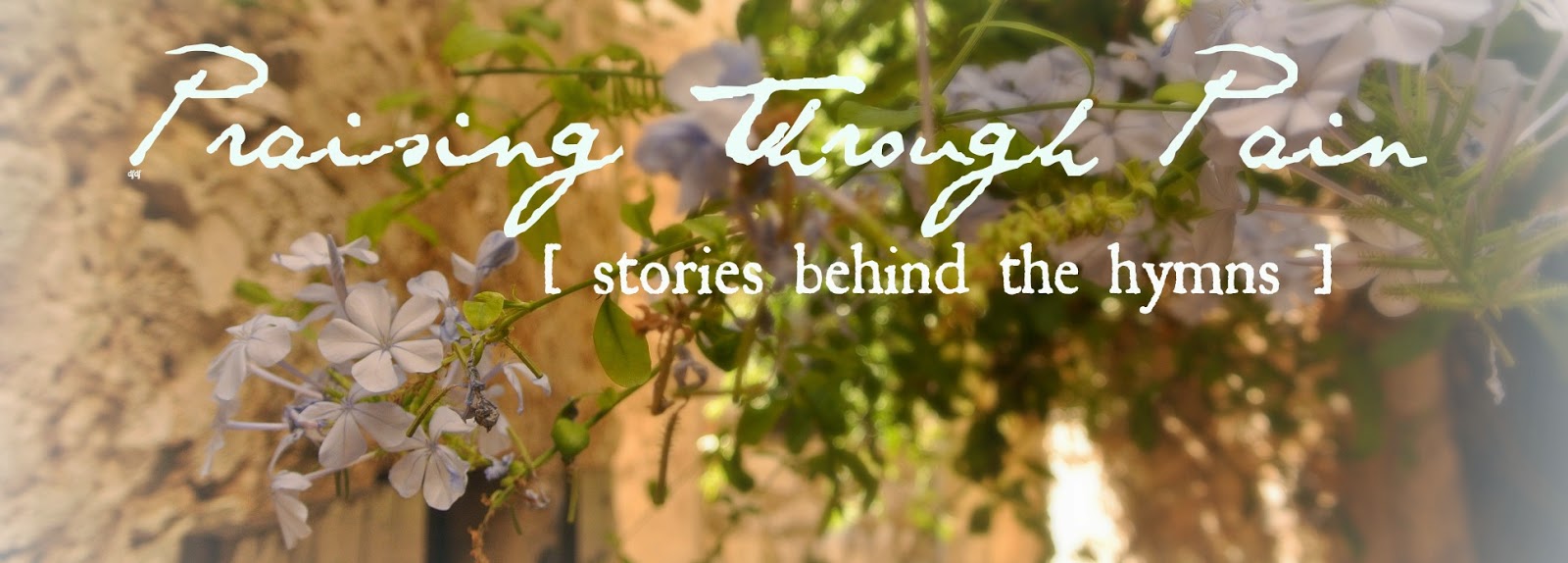Praising Through Pain // Come Thou Fount of Every Blessing
During a sermon last Sunday, I learned about hymn writer, Robert Robinson, and the power of his well known hymn, Come Thou Fount of Every Blessing. I researched the story the pastor shared because I was curious to its validity and it made such an impression on me. Grab a cup of tea and sit with me as I share about God's redemptive love for a man who was in the depths of wayward despair.
A rebellious adolescent, Robert Robinson got himself in plenty of trouble growing up. Financially destitute after his father's death while Robert was a young child, he worked to earn his living from an early age. He got into the wrong crowd and was quite the delinquent until, at age seventeen, he attended a revival meeting (some records say he was there to make fun of the Christians) and the well-known traveling minister, George Whitefield, preached on repentance. He was convicted of his sinful living and eventually found peace and redemption after diving into Scriptures to know God for himself. His life was transformed in the next few years and he soon became a preacher, a theologian, and a hymn writer. In 1757, in his early twenties, he wrote Come Thou Fount of Every Blessing, which was largely an autobiographical hymn, especially with this verse:
Prone to wanter, Lord, I feel it,
Prone to leave the God I love . . .
Whatever version of the story is closest to the truth, it still leaves me amazed that God in His sovereignty can use whatever He wants to make Himself known to us. He can even use lessons that we have learned in earlier years and allow us to re-teach ourselves of His goodness and mercy as he did with Robert Robinson.
I can attest to this personally. I love journaling whether during mountain-top experiences when I am full of joy and hope in what God is doing -- or in the dark valleys where the shadows cause fear and anxiety to creep up like a cold wind. Anywhere along this spectrum, God is at work, teaching our heart through both the bitter and the sweet. There are lessons in each of though seasons, though the dark seasons are still understandably painful. But looking back at old journals from previous years, I have often been encouraged by a quote or personal story that I shared in my journals, and through them, my "younger self" encouraged my current self in certain things my heart and mind needed to hear. Whether it was a reminder to trust in God's faithfulness as I read through praise reports of ways that God has taken care of all my needs, or whether tear-stained pages where my raw emotions were spilled out and I was asking God why I was going through that specific season. Through it all, God is able to teach us and remind us of who He is and who we are in Him.
Do you journal, write songs, or have any other ways that help you remember lessons God is teaching you? Have you had a similar experience where something you've written in the past comes up and teaches you in a fresh and much-needed way?
While God was miraculously delivering the wandering Israelites, God instructed Joshua (the new leader after Moses' death) to set up a memorial near the banks of the Jordan River so that generation after generation of Israelites would be able to remember the God who saved them and was leading them to their much-awaited Promise Land. Twelve men waded back into the Jordan River they had just traversed and each picked up a stone and set up a memorial with twelve stones to commemorate God's victory and providence (see Joshua 4:1-13). In this way, the future generations would remember this day and draw near to God.
Robinson's hymn was a memorial stone that God in His sovereignty knew would serve to remind Robinson of his initial devotion to God. It helped draw him back to God. Likewise, our journal letters, blog posts, or photography diary can be memorial stones that lead us back to God's grace, faithfulness, forgiveness, and redemption. I challenge you (and will join in on this challenge!) to take some time this week to look back any "memorial stones" that remind you of God's character and promises. And if you're willing, share below in the comments so that others may be encouraged as well!
"Remember the wonders he has performed, his miracles,
and the rulings he has given . . ." (Psalm 105:5)
[1]
________________________________________________
Sources: WorldWise Hymn, Revive Our Hearts, ShareFaith.

Comments
Post a Comment
I love to hear your thoughts!
Elle Alice